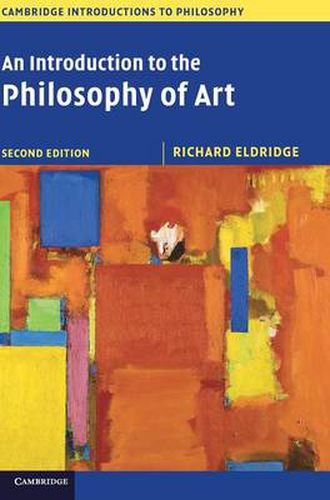Readings Newsletter
Become a Readings Member to make your shopping experience even easier.
Sign in or sign up for free!
You’re not far away from qualifying for FREE standard shipping within Australia
You’ve qualified for FREE standard shipping within Australia
The cart is loading…






An Introduction to the Philosophy of Art is a clear and compact survey of philosophical theories of the nature and value of art, including in its scope literature, painting, sculpture, music, dance, architecture, movies, conceptual art and performance art. This second edition incorporates significant new research on topics including pictorial depiction, musical expression, conceptual art, Hegel, and art and society. Drawing on classical and contemporary philosophy, literary theory and art criticism, Richard Eldridge explores the representational, formal and expressive dimensions of art. He argues that the aesthetic and semantic density of the work, in inviting imaginative exploration, makes works of art cognitively, morally and socially important. This importance is further elaborated in discussions of artistic beauty, originality, imagination and criticism. His accessible study will be invaluable to students of philosophy of art and aesthetics.
$9.00 standard shipping within Australia
FREE standard shipping within Australia for orders over $100.00
Express & International shipping calculated at checkout
An Introduction to the Philosophy of Art is a clear and compact survey of philosophical theories of the nature and value of art, including in its scope literature, painting, sculpture, music, dance, architecture, movies, conceptual art and performance art. This second edition incorporates significant new research on topics including pictorial depiction, musical expression, conceptual art, Hegel, and art and society. Drawing on classical and contemporary philosophy, literary theory and art criticism, Richard Eldridge explores the representational, formal and expressive dimensions of art. He argues that the aesthetic and semantic density of the work, in inviting imaginative exploration, makes works of art cognitively, morally and socially important. This importance is further elaborated in discussions of artistic beauty, originality, imagination and criticism. His accessible study will be invaluable to students of philosophy of art and aesthetics.